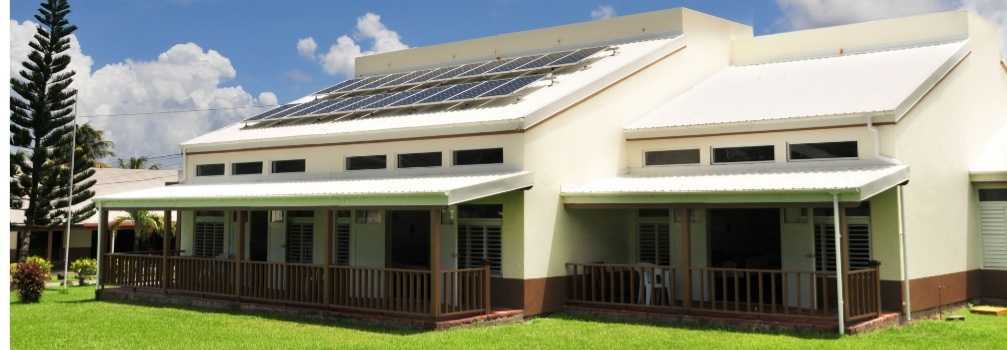
| Port of Spain, Trinidad, March 26, 2021 (PAHO) – Sint Maarten took a step closer to preparedness for disasters and health emergencies today with the launch of a project that will include two multi-purpose community centers that will also serve as shelters for at least 100 people each. The SMART buildings – which will reflect standards of sustainability, resilience, and green technology – are part of a broader preparedness project funded by the European Union (EU) and implemented by the Pan American Health Organization (PAHO). In the keynote address during the virtual launch of the project, Sint Maarten Prime Minister Silveria Jacobs said, “We are particularly pleased that this project can commence. By raising awareness and building capacities in disaster preparedness, we will empower and prepare the people of Sint Maarten to better respond to emergencies in the future.” The preparedness project – “Building resilience by improving emergency response and disaster preparedness for the people of Sint Maarten” – is part of PAHO/WHO’s SMART initiative, which is aimed at building and retrofitting facilities in the Caribbean to improve their environmental standards and make them resilient to disasters. Along with the community centers, the preparedness project will include technical assistance to increase the country’s governmental capacity to respond to disasters and public health emergencies, such as pandemics. The project, including community engagement activities, will also help vulnerable individuals, households, and communities in Sint Maarten prepare, cope, adapt and recover. PAHO Director Carissa F. Etienne said during the launch, “The activities in this project foster long-term competences in disaster preparedness and management that aim at achieving sustainability rather than project-based support.” Dr. Etienne added, “The SMART standards are now recognized in all the region of the Americas and have been expanded from health facilities to schools, hotels, shelters, and other government buildings.” The SMART initiative focuses on strengthening structural and operational aspects of facilities and providing green technologies. Energy improvements include solar panels, electric storage batteries, and low-consumption electrical systems, which reduce facilities’ carbon footprints and provide energy autonomy, allowing them to continue running during emergencies and disasters. The SMART initiative is a response to PAHO’s Plan of Action for Disaster Risk Reduction 2016-2021, which has determined that hospitals will be among facilities most vulnerable to climate change in the Caribbean. The preparedness project, funded by a EUR 6.5 million contribution from the EU, has a duration of 31 months. Fernando Ponz Canto, Head of Delegation of the European Union for Sint Maarten said, “We have made this particular effort to provide these emergency funds to launch this project and make a difference for the people of Sint Maarten. This project is fully aligned with the priorities of the European Union, in particular building resilience and disaster preparedness, which are focus areas of the relations between the EU and overseas countries and territories.” The construction of the multipurpose shelters will provide local industry with an opportunity to learn more about incorporating SMART standards into buildings or retrofitting old buildings to reflect them. The first part of the project will be hazard identification and risk assessment of potential sites for the shelters, which have been identified by Sint Maarten national authorities. Other officials at the virtual launch included Richard Panneflek, Minister of Public Health, Social Development and Labour of Sint Maarten, and Erica Wheeler, PAHO/WHO Country Representative for Trinidad and Tobago, Aruba, Curaçao, Sint Maarten, Bonaire, Sint Eustatius and Saba. |
| LINKS SMART initiative 2016-2021: https://www.paho.org/en/health-emergencies/smart-hospital Plan of Action for Disaster Risk Reduction: https://iris.paho.org/handle/10665.2/31424 |






